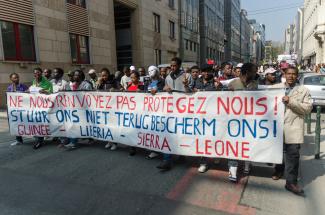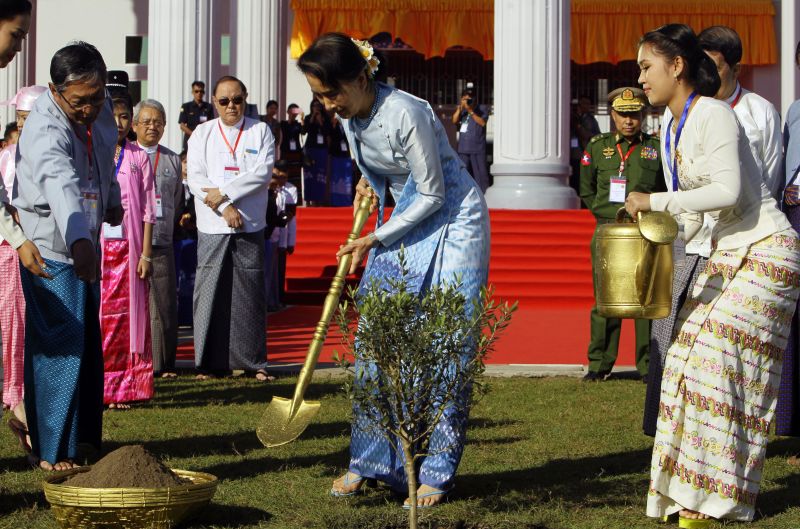Refugee policy
“Grim problem”

Corriere della Sera, Italy
We know all too well that the influx of refugees, and the Libyan question behind it, are hugely complex problems. But that cannot relieve Europe’s conscience. The continent is called upon to prove itself, confronted with sacrifices that will not end without bold and speedy initiatives. Nonetheless, the EU has only gone half way, combining human solidarity with the solidarity of incremental steps that we know from financial crises. The EU has tripled its funding for the Triton and Poseidon operations, scaling up financial resources to the monthly level of € 9 million that Italy alone spent last year on Mare Nostrum [the rescue mission that was generally considered successful in terms of preventing refugee deaths at sea]. The EU has multiplied the ships involved in the operations, thanks to support from Britain (a helicopter carrier and two smaller vessels), Germany (three frigates), France, Belgium and Ireland. However, the EU has left the decision to the ships’ individual commanders whether to go beyond 30 miles from the Italian coast. That is the limit of the operations, and it reduces their capacity to search and rescue.
Le Quotidien, Senegal
Opinion polls show that Europeans are becoming ever more xenophobic, if not to say racist. They fear that the Africans they see arriving will take away their jobs and change their way of life. Nonetheless, they are responding in a humanitarian way. But what about the leaders of our countries, which are losing the best of their potential and youth? So far, no African or Arab leader has expressed despair about what is happening on our borders. None of them have raised their voices to bemoan how compatriots are treated, to suggest how to avoid disasters and to deal with corrupt ferrymen or to show at least some human response.
Die Welt, Germany
Without letting Europe of the hook, one must not forget who are the main culprits that cause refugee tragedies: the African states themselves. War, terrorism, ethnic and religious strife are rocking many places. The EU’s external policy must finally do more to contain such conflicts – by political, economic and, if need be, military means. NATO too should start paying more attention to North Africa.
The Economist, Britain
If the EU is to live up to its values, it must act on many fronts at once, from saving lives at sea to helping countries with the greatest burden. EU leaders are right to boost the rescue mission – but it needs to be much bigger, larger even than the one in operation last year. The EU is also right to take on the people-smugglers. But they will be resilient, as the profits are irresistible and the supply of crew members almost inexhaustible.
Daily Star, Libanon
Durable solutions will only come if conditions change in the states that export so many desperate people in the first place. A responsible approach will probably start by focusing on Libya, where many of the migrants start their perilous journey. Ironically, a European-led military intervention in Libya took place in 2011 to prevent the slaughter of civilians. Unless a smart type of political and economic intervention takes place this time around, civilians will continue to pay the price, betrayed by their own leaders and those in the countries of Europe.
The Daily Nation, Kenya
All those who flee their countries for safety, security, and jobs elsewhere are actually fleeing oppression, disease, hunger, poverty, and conflict. They are fleeing what we are often told not to write about. They are escaping bad leadership. My dear Kenyans, let us disabuse ourselves of the notion that we are immune to the African condition. We can no longer proudly proclaim that Kenya is an island of peace and prosperity in a sea of turmoil.
The Telegraph, Britain
The temptation to accede to demands from human rights groups for a legitimate route into Europe for the tide of humanity gathering on the North African shore needs to be resisted. Such a response may sound compassionate but it would simply encourage even more people to make the journey. Those who fail to get into Europe legally would then try to do so unlawfully, probably by sea. How would this help? (...) The immediate priority for EU leaders now is to work out a way to prevent people boarding the boats in the first place, both by destroying captured vessels and blockading the ports they are leaving. New resettlement schemes and migration quotas will not help matters.
Le Monde, France
Jean-Claude Juncker, the president of the European Commission, characterised the extraordinary summit with the following words: “I would have liked us to be more ambitious.” Juncker was hinting at the lack of solidarity among Europeans, which became evident once more during a meeting that was supposed to deliver a strong response to the Mediterranean dramas that have recently taken place. As so often, the Union was happy to settle for the lowest common denominator.
The National, UAE
Unless the world is remade as a far fairer place, there is no real way to solve the grim problem posed by the hundreds who die in the Mediterranean Sea on their way to Europe from some benighted reality somewhere – Libya, Syria, Iraq, Mali, Senegal, Somalia, Bangladesh. No real way, that is, to solve it to everyone’s satisfaction. Obviously, economic opportunity can never be made to stretch far enough to cover the millions who want to leave hellholes. No one has the answer to the broader issue – how to reconcile inequality of opportunity with the worldwide levelling of aspiration.









